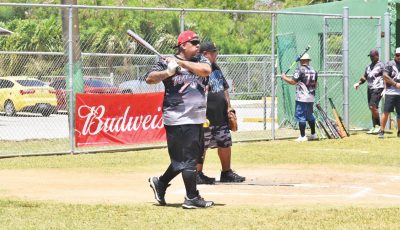Court denies restitution to victim of hit and run
The Superior Court has denied restitution to the family of the victim involved in a fatal hit-and-run case.
Superior Court Associate Judge Joseph Camacho denied the Office of the Attorney General’s motion for reconsideration regarding restitution in the case of Esekiel “Easy” Smith.
In an email to the Saipan Tribune, OAG chief prosecutor John Bradley said that the AG’s office notified the court that the CNMI Constitution guarantees a victim the right to restitution.
He added that the CNMI Code of Criminal Procedure recognizes that the estate of a deceased victim inherits that right to restitution.
“The victims of crimes, especially those killed by a criminal defendant, and the victims’ surviving families, deserve to be made whole, as the CNMI Constitution and the Code of Criminal Procedure clearly state. Nonetheless, Camacho denied the family restitution and left them exposed to a debt for medical expenses,” Bradley said.
Bradley said Camacho took the position that the victim had to pay the bill to gain the right to restitution but the OAG argues that that is not possible as the victim was killed by the reckless driver.
The AG’s office plans to look to the Supreme Court to ask them to review the decision.
Smith, 31, was sentenced to five years and six months’ imprisonment after pleading guilty to reckless driving and leaving the scene of an accident without rendering assistance.
As part of Smith’s sentence, he was ordered to pay restitution to the victim’s family and was made eligible for work release while serving his sentence to pay his restitution.
The parties agreed that, at a minimum, Smith owed $1,000 in restitution, which was immediately paid from the bail money he posted. However, the parties disagreed as to how much more Smith owed in restitution and to whom.
On March 30, 2020, Camacho issued an order stating that the Department of Fire and Emergency Medical Services and the Commonwealth Healthcare Corp. are not eligible to receive restitution when they are only “indirect third-party victims” of a crime.
The judge added that tort defense of comparative negligence is not applicable in this case because the victim’s family members did not negligently contribute to their damages.
“Voluntary offertory gifts to priests for performing funeral Mass are not economic losses for purposes of restitution,” Camacho said.
The AG’s office then filed a motion to reconsider the judge’s order.
Camacho denied the government’s motion to reconsider last Friday since there was no economic loss by the victim because he did not pay DFEMS and CHCC bills; and the estate of the victim cannot recover restitution as it is not a “direct victim” of defendant’s crime.



























